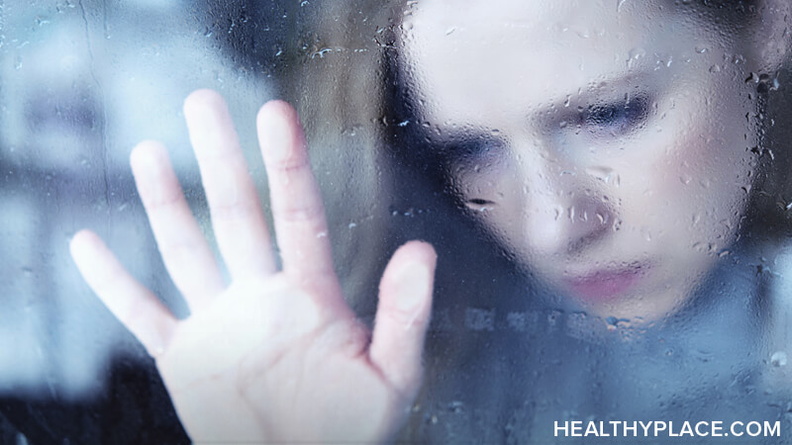Bipolar Depression Symptoms in Women

Bipolar depression symptoms in women can be different than bipolar depression symptoms in men. Both women and men with bipolar disorder I or II can develop bipolar depression, of course, but the way they experience it can vary. Keeping in mind that there are individual differences within genders and that each person’s experience with bipolar depression is unique, let’s explore, in general, what bipolar depression symptoms in women are like.
According to the authority on all mental disorders, the American Psychiatric Association’s Diagnostic and Statistical Manual of Mental Disorders, Fifth Edition (DSM-5), women are more likely than men to experience bipolar depression. In bipolar I disorder, which occurs at equal rates in females and males, more females than males sink into depression. Further, more women than men are diagnosed with bipolar II, a mood disorder involving hypomania and more depressive episodes than bipolar I.
Females with bipolar disorder spend more time in bipolar depression than their male counterparts. What do these women experience?
Bipolar Depression Symptoms in Females
Bipolar depression symptoms in women are often debilitating. They can occur as a mixed episode right alongside or back-to-back with mania, or they can strike suddenly after a period of mood stability. Either way, they quickly lead to a downward spiral of thoughts, emotions, and behaviors. Women suffering from symptoms of bipolar depression often face:
- Feelings of utter worthlessness
- Strong guilt over things she thinks she’s done wrong
- Isolation and loneliness
- Feeling hollow, empty, and/or very sad and generally down
- Apathy—no interest in activities or participation in life
- Lack of energy so all-encompassing it is often referred to as leaden paralysis
- Difficulty concentrating and making even simple decisions
- Unhealthy sleeping and/or eating patterns (too much or too little of either)
- Recurrent thoughts of death or suicide
While men do develop bipolar depression, and it can be devastating, women tend to experience more depressive symptoms, and they often experience them before they begin having manic episodes. There’s a fundamental difference between the genders that underlies a significant part of the reason: hormones.
Hormones and Bipolar Depression Symptoms in Women
Females’ unique hormonal activity increases the risk of developing bipolar depression, and it also increases the chance of relapse once that depression has entered remission. It’s important to note, however, that while hormones impact the severity of bipolar depression and its frequent recurrence, hormones don’t cause bipolar disorder.
Female hormones that underlie depression are those involved in:
- Premenstrual syndrome (PMS)
- Menstruation
- Menopause
- Pregnancy
Symptoms of these biological activities are often more intense when a woman has bipolar depression. Additionally, women with bipolar disorder are more likely to have episodes of bipolar depression during menopause.
The hormones and experience of pregnancy and childbirth often intensify bipolar depression. Postpartum depression can be much stronger and more difficult to manage when it’s accompanied by bipolar depression.
Pregnancy hormones have such an impact that women who are pregnant or who have recently given birth are seven times more likely than women without bipolar disorder to be admitted to the hospital because of symptoms of their disorder. (WebMD Medical Reference, 2016).
Because the hormones of the menstrual cycle, menopause, pregnancy, and childbirth carry risks of worsening bipolar depression symptoms or leading to a new depressive episode, it’s important for women to be aware of how hormonal and mood activities affect them. Knowing how you experience bipolar depression and how your hormones impact your mood can help you take measures to manage both depression and hormones. Experiment to see what makes things better, create a treatment plan, and promise yourself to stick to it even when you don’t feel up to it.
Medication is almost always used to treat bipolar depression (in pregnancy, though, it’s used much less due to risks to the developing baby). It’s often used to treat female hormonal fluctuations as well. Include your medication in your treatment plan to help your brain find stability.
Bipolar depression symptoms in women can be intense and disruptive to life. Fortunately, symptoms can be treated and managed, and women with bipolar depression can live well.
APA Reference
Peterson, T.
(2021, December 28). Bipolar Depression Symptoms in Women, HealthyPlace. Retrieved
on 2026, January 14 from https://www.healthyplace.com/bipolar-disorder/bipolar-depression/bipolar-depression-symptoms-in-women

